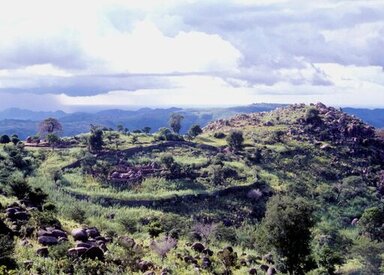Adamawa is a Nigerian Northeastern state that was established on the 27th of August, 1991 after Taraba State was carved out from the old Gongola State – which brought about a change of name for the region.
- Date of creation: August 27, 1991
- Slogan: The Land Of Beauty
- Geopolitical zone: North East
Nicknamed “The Land Of Beauty”, Adamawa State, whose capital is Yola, was spread into four administrative divisions after it was established in 1991. These administrative divisions are:
– Adamawa
– Ganye
– Mubi
– Numan
Adamawa State boosts of prominent individuals like Atiku Abubakar – who is a former Vice President of the Federal Republic of Nigeria and one of the strongest contenders in the forthcoming elections.
Specifically, he’s the presidential candidate of the Peoples Democratic Party in the February 16 Presidential Election.
He built a top-class university in Yola – the American University of Nigeria – which is regarded as one of the best schools in the country in terms of quality.
It has always been a peaceful state until the menace of Boko Haram broke out – forcing former President Goodluck Jonathan to declare a state of emergency in the state on May 14, 2013.
Geography
Adamawa is a very large state – one of the largest in the country, occupying about 36,917 square kilometres with 21 local government areas.
The state shares a boundary with Gombe (to the west), Borno (to the northwest), as well as Taraba State (to the southwest). Additionally, her eastern border is one of Nigeria’s borders that demarcate her and Cameroon.
Talking about topography, Adamawa state is a region filled with mountainous land crossed by large river valleys. Valleys like Mount Cameroon and Mandara Mountain form part of the landscape.
Economy
Adamawa’s economy relies on farming activities no wonder the majority of those settling in the state are farmers. They cultivate the likes of cotton, and groundnuts while, maize, yam, cassava, guinea corn, and so on.
Those living beside Rivers engage in fishing, while the Fulanis amongst them are cattle rearers. It is admirable to state that Adamawa has a network of roads linking all parts of the country.
A number of communities in the state owe their developments to the Germans who ruled the area in the 19th century.
There are also two indigenous churches in the State – the Church of the Brethren in Nigeria and the Lutheran Church of Christ in Nigeria.
The headquarters of the EYN Church is located in Mubi, while that of the LCCN Church is in Numan.
Some American missionaries founded the Church of the Brethren in Nigeria in 1923, while the Lutheran Church of Christ in Nigeria was founded by some Dutch missionaries in 1913.
History
The region known as Adamawa today used to be a subordinate kingdom of the Sultanate of Sokoto before it became a Nigerian State. The rulers in the kingdom bear the title “Emir”.
The kingdom known as Adamawa today was founded by Modibo Adama – which is where the name originates from. He was made a regional leader of the Fulani Jihad of Usman dan Fodio back then in 1804.
Modibo, who came from a region known as Gurin, led a jihad in his own state and was able to conquer a lot of lands. Before founding Yola in 1841, he made Ribadu his capital in 1838, before moving it to Joboliwo the following year.
Even after the Europeans colonised the country, the Emirs still rule over the people (although they now play a ceremonial role).
Prominent Emirs in Adamawa
Emirs of Adamawa have included:
- Modibbo Adama ben Hassan, 1809–1848
- Lawalu ben Adama, 1848–1872 (son of the previous
- Sanda ben Adama, 1872–1890 (brother of the previous)
- Zubayru ben Adama, 1890–1901 (brother of the previous)
- Bobbo Ahmadu ben Adama, 1901–1909 (brother of the previous)
- Iya ben Sanda, 1909–1910 (son of Sanda ben Adama)
- Muhammadu Abba, 1910–1924 (son of Bobbo Ahmadu ben Adama)
- Muhammadu Bello ben Ahmadu ben Hamidu ben Adamu, 1924–1928
- Mustafa ben Muhammadu Abba, 1928–1946 (son of Muhammadu Abba)
- Ahmadu ben Muhammadu Bello, 1946–1953
- Aliyu Mustafa, 1953–2010
- Muhammadu Barkindo Aliyu Musdafa, 2011–present
Impact of Islamist Insurgency In Adamawa
The region has been negatively affected by the Islamist insurgency in the country. Adamawa has become a home to camp thousands of internally displaced persons running away from Boko Haram activities in neighbouring regions.
In 2014, it was recorded that there are about 400,000 internally displaced persons in the State’s capital alone.
In 2017, it was said that the government of the State protected jihadist Fulani herdsmen that attacked Christians in Demsa, and even went ahead to throw bombs in the camp of the Christians through the Air Force.
The United States Agency for International Development is one of the organizations serving the community, and it has made known its commitment to keep on providing humanitarian assistance


